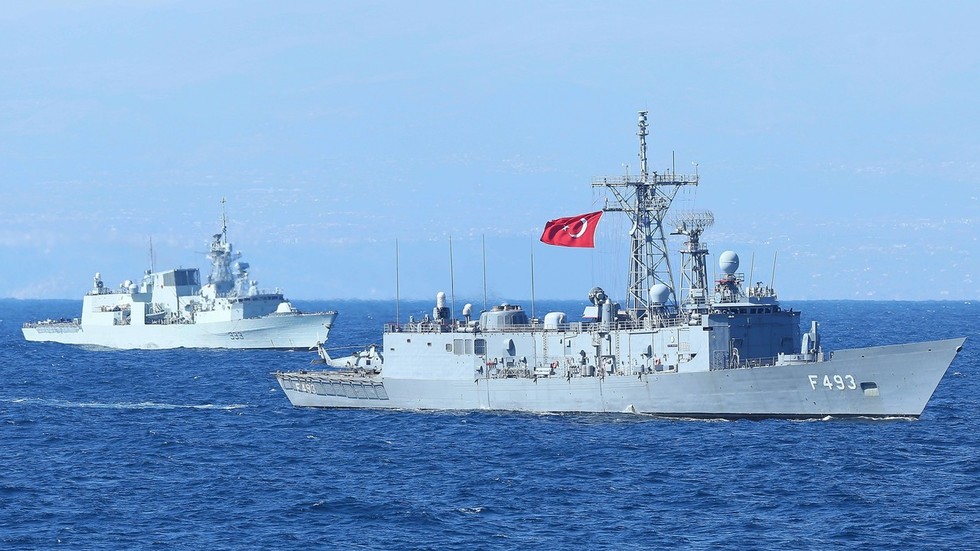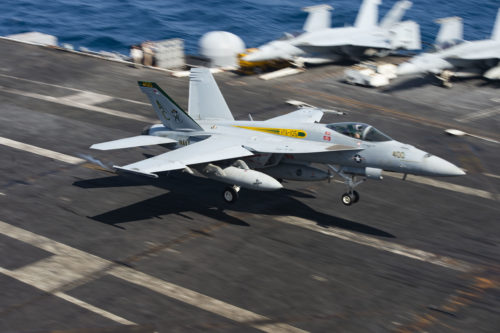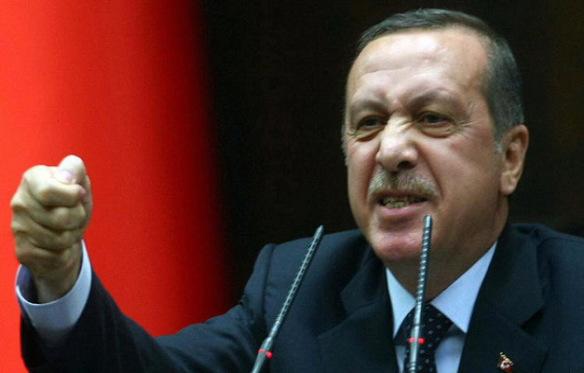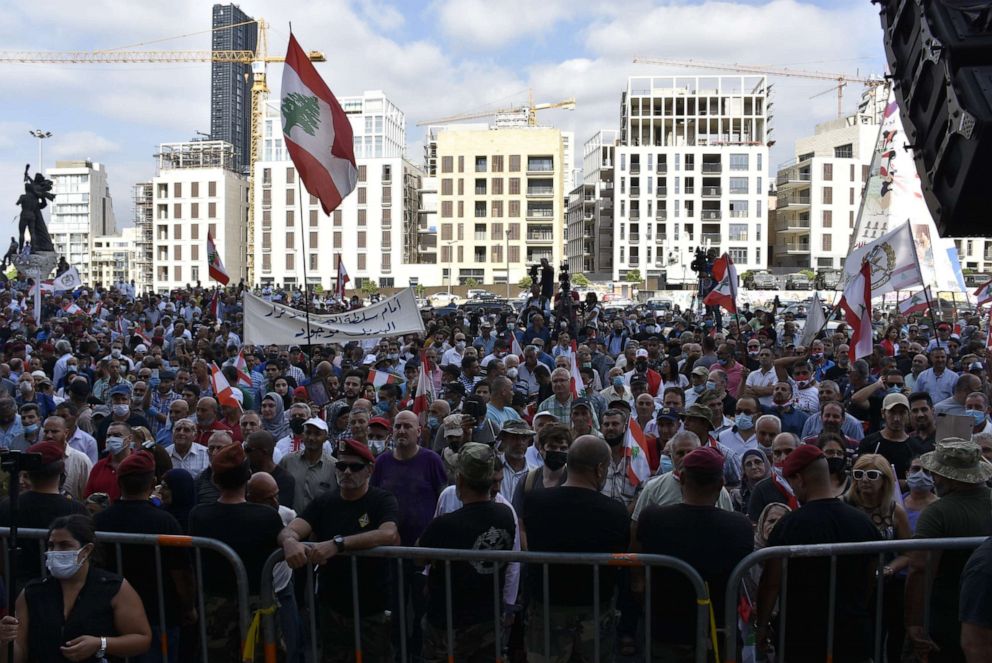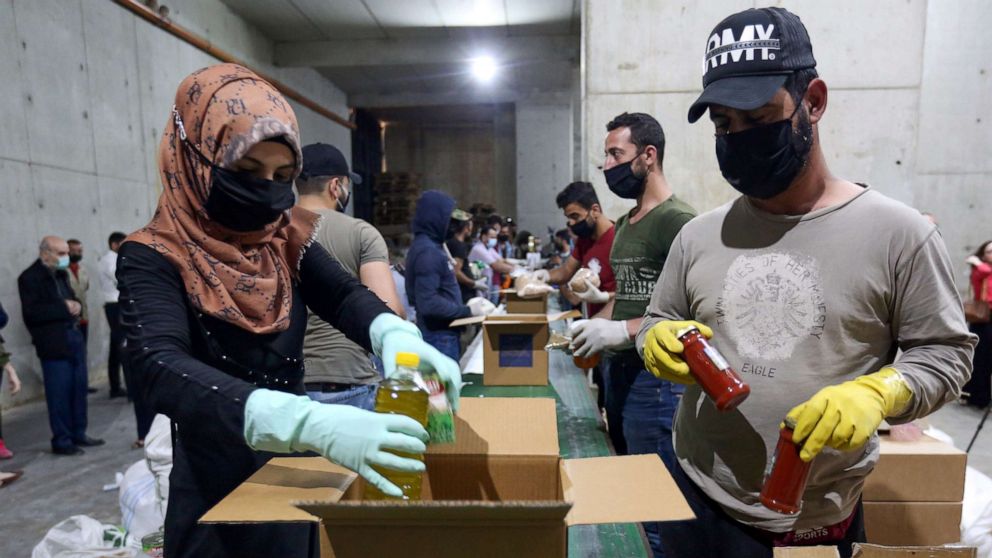Posted for fair use.....

 ahvalnews.com
ahvalnews.com
Turkey’s military pact with Niger securing foothold in neighbouring Libya - The New Khalij
Turkey’s newly-signed military agreement with Niger signals Ankara’s interest in maintaining a foothold in the oil rich, war-torn country of Libya next door, The New Khalij reported on Friday.
Turkish Foreign Minister Mevlüt Çavuşoğlu met with President of Niger Mahamadou in Niger on July 21st, when the pair signed a military agreement and discussed the effects of the ongoing war in Libya on their respective countries.
The move by Ankara is part of an attempt to secure a ground border with Libya against a possible military confrontation with Egypt, The New Khalij said.
Turkey throws its weight behind Libya’s internationally recognised Government of National Accord (GNA), which in recent weeks has turned back a 14-month assault on capital Tripoli by the Egpytian-backed Libyan National Army, led by Field Marshal Khalifa Haftar.
Earlier this month, Egyptian President Abdel-Fattah al-Sisi ordered his military to be ready to carry out any operation within or outside Egypt as the Turkish-backed GNA in Tripoli made preparations to capture the energy hub and city of Sirte in northern Libya.
While in Niger, Çavuşoğlu vowed to make contributions to the country in the areas of transportation, construction, energy, mining and agriculture, in what The New Khalij said was part of Ankara’s ongoing extensive contributions to infrastructure development on the continent.
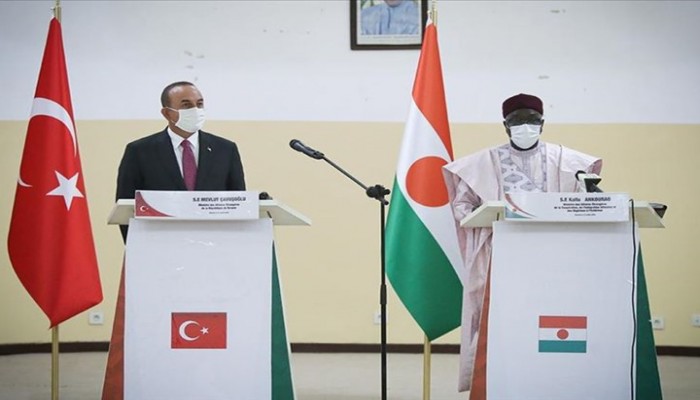
اتفاقية عسكرية مع النيجر.. تركيا تضع قدما في جوار ليبيا - الخليج الجديد
الاتفاقية تحمل عدة رسائل بخصوص الموقف التركي من الصراع الليبي.

Turkey’s military pact with Niger securing foothold in neighbouring Libya - The New Khalij | Ahval
The move by Ankara is part of an attempt to secure a ground border with Libya against a possible military confrontation with Egypt, The New Khalij said.
Turkey’s military pact with Niger securing foothold in neighbouring Libya - The New Khalij
- Jul 26 2020 04:37 Gmt+3
- Last Updated On: Jul 26 2020 04:58 Gmt+3
Turkey’s newly-signed military agreement with Niger signals Ankara’s interest in maintaining a foothold in the oil rich, war-torn country of Libya next door, The New Khalij reported on Friday.
Turkish Foreign Minister Mevlüt Çavuşoğlu met with President of Niger Mahamadou in Niger on July 21st, when the pair signed a military agreement and discussed the effects of the ongoing war in Libya on their respective countries.
The move by Ankara is part of an attempt to secure a ground border with Libya against a possible military confrontation with Egypt, The New Khalij said.
Turkey throws its weight behind Libya’s internationally recognised Government of National Accord (GNA), which in recent weeks has turned back a 14-month assault on capital Tripoli by the Egpytian-backed Libyan National Army, led by Field Marshal Khalifa Haftar.
Earlier this month, Egyptian President Abdel-Fattah al-Sisi ordered his military to be ready to carry out any operation within or outside Egypt as the Turkish-backed GNA in Tripoli made preparations to capture the energy hub and city of Sirte in northern Libya.
While in Niger, Çavuşoğlu vowed to make contributions to the country in the areas of transportation, construction, energy, mining and agriculture, in what The New Khalij said was part of Ankara’s ongoing extensive contributions to infrastructure development on the continent.

اتفاقية عسكرية مع النيجر.. تركيا تضع قدما في جوار ليبيا - الخليج الجديد
الاتفاقية تحمل عدة رسائل بخصوص الموقف التركي من الصراع الليبي.

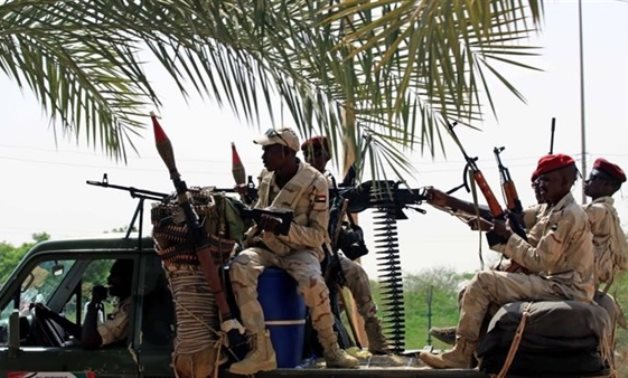



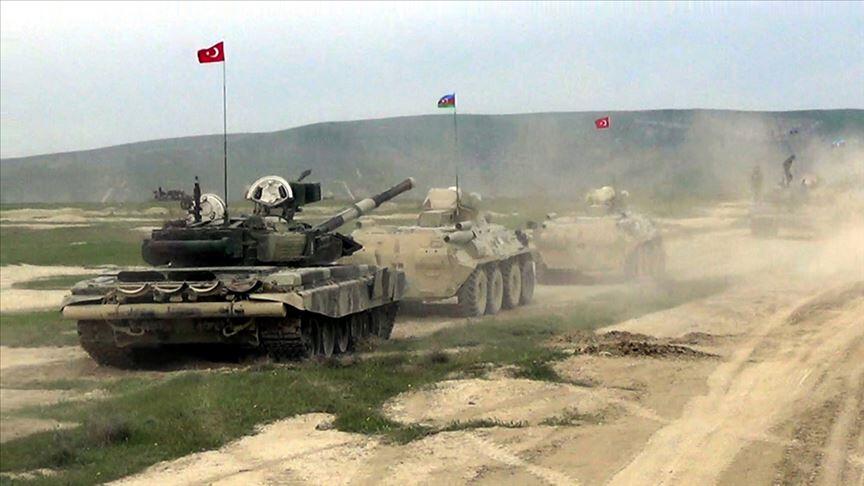


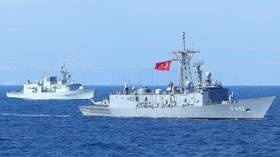
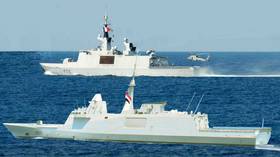 Turkish media claims Egyptian military used fake photo to report on joint naval drills with France
Turkish media claims Egyptian military used fake photo to report on joint naval drills with France 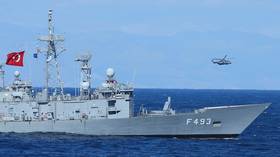 Turkey will be the death of NATO – its recent clash with fellow member France off the coast of Libya is an early symptom
Turkey will be the death of NATO – its recent clash with fellow member France off the coast of Libya is an early symptom 